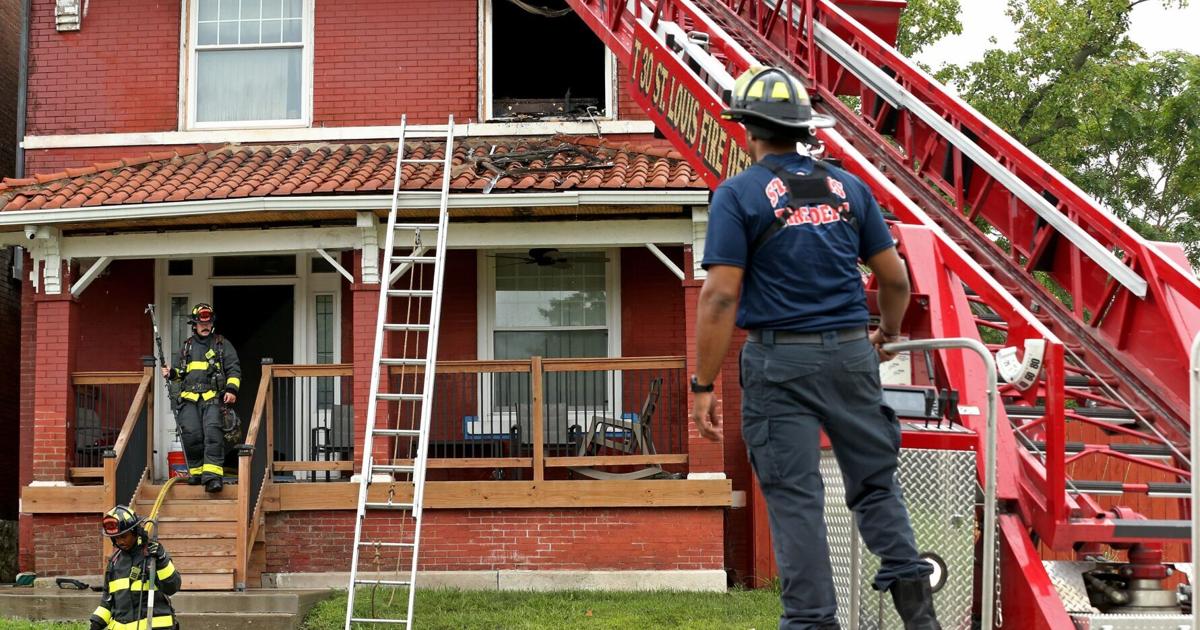
ST. LOUIS — A decade ago, officials here said that firefighter pensions had grown so rich as to be unaffordable, and, if unchecked, would someday bankrupt the city. They fought for months with the fire union, and finally passed a series of sweeping reforms.
On Thursday, aldermen reversed one of those reforms, voting to return oversight of all firefighter pensions to a board whose members are mostly firefighters.
Alderman Tom Oldenburg, who represents sturdy middle-class neighborhoods in St. Louis’ southwestern corner, said his bill would save the city money and boost morale for firefighters, who fear the city’s control of the new system.
“This puts workers first,” Oldenburg said. “This is a good day for the board.”
But opponents blasted the move, saying it would not save money and would unwind fixes to problems that once threatened to overwhelm the city budget.
People are also reading…
“It’s a farce,” said Alderman Shane Cohn, of Dutchtown.
The office of Mayor Tishaura O. Jones said it was reviewing the bill, but was worried. “We are concerned about how this bill’s rollback of reforms would harm the city’s budget, lead to increased costs for taxpayers, and diminish local control,” spokesman Nick Desideri said in a statement.
Firefighter pensions are currently divided between the decades-old, firefighter-dominated system and a new, city-run plan set up by the 2012 reforms. The old system handles payments earned up to Feb. 1, 2013, when cost-saving cuts took effect. The new system handles the administration of benefits slimmed down during the reforms.
But Oldenburg’s bill puts the old board in charge of running the new system as well as the old. He said it would save the city money by bringing two pension systems under one administration. Firefighters worry, he said, that the city’s control of the new system could make it easier to underfund pensions in the future.
Cohn scoffed at the claims of savings. He pointed colleagues to testimony from a Black firefighters’ group, which noted the administrative costs of the new system are less than half of those of the old system.
Alderman Brandon Bosley, of Hyde Park, questioned whether Oldenburg’s plan would end up cutting the jobs of the city workers who are in charge of the new system. “We can say it’s a good day for the board,” he said. “It’s a bad day for somebody else.”
Oldenburg said the employees could fill some of the hundreds of city positions that are currently vacant.
The bill passed with 17 yeas, 7 nays, 2 presents and two absences.
Cohn and Bosley both voted against the bill. Others voting no included Aldermen James Page, of downtown, Tina Pihl, of Forest Park Southeast, Jesse Todd, of Vandeventer, Norma Walker, of the city’s northwest side, and Shameem Clark Hubbard, of the near northwest side.
Aldermen Sharon Tyus, of Kingsway East, and Annie Rice, of Shaw, voted present. Aldermen Lisa Middlebrook, who represents most of the north riverfront, and Bill Stephens, of far south city, were absent.
The mayor has 20 days to veto the bill. If she does, the board could override her with 20 votes — and Oldenburg said he thinks he has 19. The changes would also require approval from the state Legislature.
Cortex tax breaks
Aldermen also gave initial approval to legislation from Pihl extending time limits on $79 million in tax increment financing for development in the Cortex tech district in the Central West End. The move will, among other things, aid plans to build 165 new apartments in the area.
Pihl, who campaigned on reining in subsidies, noted a number of concessions from Cortex: Seventeen of the 165 new apartments will be affordable for people making less than 60% of area median income. Cortex and its development partner will contribute $250,000 to the city’s Affordable Housing Trust Fund. And 10% of the value of incentives will go to a city-controlled infrastructure fund for low-income areas.
Also Thursday, Alderman Jack Coatar, of Soulard, introduced a bill to appropriate $30 million from the NFL settlement, a split approved just Wednesday, to help pay for the ongoing expansion of the downtown convention center.
Soaring construction costs have pushed the project over budget.
